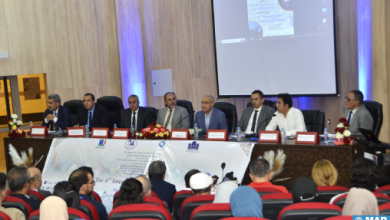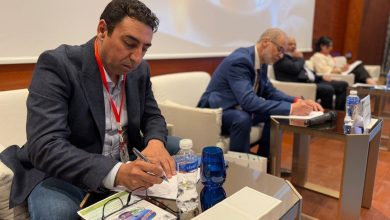Youth Africa Foundation publishes the 2024 version of its study on the employability of young people in Morocco

Hibapress / Press release
Youth Africa Foundation, a non-profit association, has published the 2024 version of its study on the employability of young people in Morocco. An exhaustive market study aimed at evaluating the effectiveness of the measures put in place by Moroccan higher education establishments to improve the employability of their students.
This study carried out in partnership with Stagiaires.ma, the first intern recruitment site in Morocco, and Profile-check.net, leader in online CV correction, was carried out from December 1, 2023 to February 28, 2024, and surveyed 3,348 students from 336 higher education establishments across Morocco. It relied on a rigorous methodology, combining telephone surveys and detailed analyzes of respondents’ profiles, to offer a comprehensive view of the preparation of Moroccan students for the job market.
OBJECTIVES AND METHODOLOGY
The main objective of this study was to explore the support systems put in place by schools to facilitate the professional integration of their graduates. This includes the evaluation of support workshops, school-business partnerships, the presence of Career Centers, the supervision of students during internships, and the obligation of internships in companies.
STUDY RESULTS
The study conducted by Youth Africa Foundation, in collaboration with Stagiaires.ma and Profile-check.net, revealed crucial information regarding the preparation and professional integration of Moroccan students. Here is a summary of the main findings:
Insufficient preparation of Moroccan students for the job market
The survey reveals significant gaps in the preparation of Moroccan students to enter the job market. A considerable proportion of students do not have access to CV and cover letter writing and correction workshops, fundamental skills in the quest for professional opportunities. Despite the crucial importance of presence on professional social networks such as LinkedIn, less than 15% of private school students have benefited from online presence management workshops.
Mock interviews, a key step to sharpen students’ skills and increase their confidence, are also neglected. Only 4% of students in private schools participated in mock interviews, indicating a lack of structured initiatives to address this deficit. However, the picture is not entirely gloomy. Around 43% of students were helped by their school to make connections with companies, suggesting some measure of commitment from schools to facilitate students’ integration into the professional world. These trends indicate an opportunity for significant improvement. In a world where competitiveness is king, it is imperative to arm students with not only academic, but also professional skills.
Positive interactions between schools and businesses with a need to improve forums
The results indicate a positive interaction between schools and businesses in Morocco. Around 78.3% of private schools have partnerships with businesses, a positive indicator of integration between the education and employment sectors. Additionally, 63% of students said their school shares internship or job opportunities with them. This reflects a desire by educational institutions to facilitate the transition of students to the job market.
However, the organization of job fairs remains an area where improvements can be made. Less than 40% of private school students said their school hosted job fairs, highlighting a need to strengthen these platforms that are crucial for connecting students and employers. Most job fairs are organized by the schools themselves, indicating a centralization that could benefit from greater involvement of student clubs and winners’ associations to diversify and enrich these events.
Limited effectiveness of Career Centers in Moroccan schools
The integration of Career Centers and career development resources in Moroccan schools is a crucial facet of preparing students for the transition to the professional world.
However, the study reveals notable gaps. Although 31% of private school students participated in information sessions on career opportunities, the existence and effectiveness of Career Centers remains a challenge.
Access to recruitment consultants is also limited. Only 24.7% of private schools have a recruitment consultant, and access to technological monitoring tools for internship or job searches is extremely limited, with only 3.7% of students benefiting from them. This disparity highlights a critical need to strengthen career support infrastructure in schools.
Strong involvement in supervising trainees
Supervising students during internships is a crucial dimension to maximize learning and development. More than half of private school students were supervised by their school during their internship, indicating significant involvement of schools in this process. However, the supervision varies, with particular attention paid to the choice of the theme of the internship, while other aspects, such as the visit to the internship location, are neglected.
The company also plays a significant role in supervision. A large proportion of students report having been supervised by the company during their internship, a positive indicator of companies’ commitment to developing students’ skills. This positive interaction is a step toward robust partnerships between schools and businesses to ensure productive and enriching internships for students.
An obligation for internships but only at the end of studies
Carrying out internships in companies is an integrated element in the curriculum of Moroccan students, with an overwhelming majority indicating that internships are obligatory. However, these obligations tend to be concentrated towards the end of studies, with 82% of private school students reporting that internships become obligatory at the end of their studies.
The end-of-internship defense is also a mandatory component for a large majority of students, emphasizing the importance given to the formal presentation and evaluation of the skills and knowledge acquired during internships. These trends align with international practices where internships and corresponding assessments are integrated to provide a comprehensive and practical learning experience.
Youth Africa Foundation recommendations to improve the employability of young people
Analysis of the study data highlights specific areas that require particular attention to improve the employability of young people in Morocco. Here are recommendations based on these insights:
• Optimization of student preparation
• Expansion of School-Business partnerships
• Improvement of Career Center services
• Strengthening supervision during internships
• Standardization of internship policies
• Implementation of monitoring of schools’ support systems for their students
• Establishment of unified and incentive regulations for internships
By implementing these recommendations based on the insights derived from the study, it is possible to specifically address specific areas that require improvement, thereby helping to significantly increase the employability of young people in Morocco.







